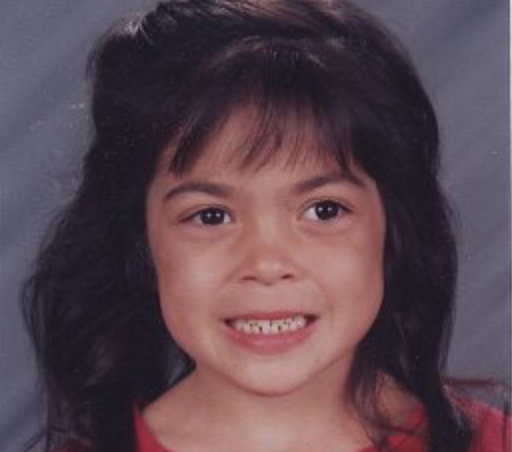It was the summer of 2017. I was in Michigan with my husband for his family’s annual reunion, and we had just packed our bags in the car to head home.
I said goodbye to everyone, ending with the one I’d grown closest to: the family’s skittery rat dog. During my most anxious moments, that dog had taken the place on my lap, which my cat would usually occupy at home. This came as a surprise to my in-laws. Usually, he wasn’t really social.
He was curled up on a big armchair, sleeping, and I reached out to pet him on the back, only to recoil from the sudden bite. I felt as though my heart had been ripped out because a dog bit me.
I was vaguely aware of the aunts and uncles gathering around me, making cooing noises, turning my hand over gingerly to see if he’d broken the skin. I could feel my smile shaking, threatening to expose my inner state, and I patiently worked through the I’m okay and the second round of goodbyes to prove I was fine.
But the second our car had disappeared through the woods and out into the endless cornfields, I held my hand to my heart and sobbed. I cried as if someone I needed to make it through a day with confidence had died. I could hear and feel my husband’s solid voice beside me, and I desperately tried to hang onto it, but the grief was huge, horrendous, and uncontainable.
My adult self cries but the child within withholds the reason why. In the past four years, I’ve come to understand why this split exists.
When I was younger, my optimism was a barrier between my mom and the little child within. But at 14, the critical voices of those around me somehow found their way in, like the ocean beating against the shore every day until one wave finds its way through a weak spot and rushes into every nook and cranny.
That was the year I started journaling, every day or every other day, scribbling meanderings that didn’t seem significant. But looking at them now shows an imprint of who I was without the critical voices whispering from the inside. I was sketching myself in words in case I forgot.
But even with my almost daily efforts, her words began to eke onto the page too. I’d look at the page searching for the truth of me and instead, gave in to the ugliness on the page, believing the worst of myself.
One journal entry would claim I was wonderful, while another would claim I was worthless. Every thought was said in their voices, but I thought they were mine. So I constantly struggled with the contradictory voices and concluded that I was crazy.
Every time I cried, I couldn’t locate the reason. I kept crying, thinking I would get mad, so I had to shut myself up whenever I teared up. I didn’t know my inner child was keeping the reason from me.
It made times like these harder for me because I’d been gaslighted my entire life and believed that. I never had a good enough reason for my tears. So I had to be the one to decide that my reason was good enough. But that meant I had to be aware of the reasons and talk to the only one who knew what it was.
My husband stopped at a gas station to fill up and went inside to buy me tissues. While he was inside, I sensed how big and open the fields around me were. I breathed as deeply as I could through the snot and the red heat of my face. I ducked down as a woman walked back to her gas pump, then dug through my bag to find my journal.
The first time I tried writing to my inner child, it was full of deep regret and apologies for how long I had held her down.
Our respective voices bled through on the page, one lost and hurting, while the other offered gentle wisdom. Lending my hand to voice her thoughts was enough to get her to trust me with all the reasons for all the feelings I didn’t have answers for. It was a conversation held between the two sacred halves that made up my whole self.
I took a deep breath. Why are you so upset about the dog biting you? I wrote. I wasn’t accusatory. I tried my best to be patient with how seemingly abnormal our feelings seemed to others, turning my focus on how she felt. I had to remind myself that it was not about looking normal—it was about understanding how I felt and why.
I closed my eyes and found myself in an imaginary bedroom, decorated in soft pink and yellow lights and white furniture—the comforting kind of room I wished I always had growing up, decorated carefully by someone who loved me. I approached the bed and sat near the small lump under the blanket. I could hear her crying, and I asked her again why she was so upset about the dog biting us.
“Dogs are supposed to be man’s best friend. They’re supposed to offer unconditional love”, she said between sobs under the covers. If a dog can’t even love me, then people were right all along. I’m not lovable.
I’m not lovable. A thought that is always floating through my head, be it from my inner child, or my adult self.
I pulled the covers back and took her hand. “Rayla,” I said gently, “There are dogs out there who bite, whether it’s because they’re untrained or have a different disposition. Saying all dogs are capable of unconditional love isn’t true, and even if it were, our love for ourselves can’t come from outside of us.”
She looked at me, slowly understanding. Tears welled up in her eyes. She buried her face into my shirt. “I love you,” she said.
“I love you,” I told her, hoping it reached back to every single moment she hadn’t heard it when she needed it. I opened my eyes and looked down at our words. I didn’t need to cry anymore. I understood where it was coming from now.
When my husband got back to the car with my tissues, he saw my journal.
“Did you talk to her?” I nodded, loving that he supported my process and supported her as if she was another person he loved.
I love her, too. She is giving me reasons for all the hurt I’ve ever felt. She’s giving me credibility and sanity. She’s reminding me how important I am.
When I stop getting impatient at not having all the puzzle pieces, look into her eyes, and remember there’s a soul inside who needs me, then she gives me that puzzle piece. By that time, I’m only looking at her.
I don’t need the puzzle piece to fix what the world may choose to see as broken or abnormal behavior. She’s the reason I need the pieces—to love her—to love all of me.
~
 Share on bsky
Share on bsky






Read 12 comments and reply